Woman Vents Online About Her Hatred for Husband's Cat, Reacts After Getting Attacked by Online Users
It is nearly unfathomable to individuals who see cats as members of their family that there are others who detest or even despise them. However, there are some rational explanations for why humans might avoid cats, even though we may not fully comprehend why certain people find the characteristics that most cats share repulsive.
It makes sense that those who are allergic to cats would never go near them. While they might not truly "hate" cats, they can legitimately be frustrated by how cat dander exacerbates their moderate-to-severe allergy symptoms.
Some dislike cats because they love to hunt mice and birds, regardless of whether they live indoors exclusively, are owned and roam freely, or are feral and stray. Additionally, certain people dislike cats due to their erratic and distant interactions with their human companions.
Cats are sure to let people know if they are uncomfortable or scared by swatting or hissing at them, and some individuals don't appreciate that. Still, cats and humans can form strong relationships as long as the feline is socialized with people as a kitten.
However, the most common reason for a self-directed, autonomous cat acting distantly is the introduction of a new family member. The OP in today's post happens to hate her husband's cat, and you can feel the animosity in the tone of her post.
The OP writes
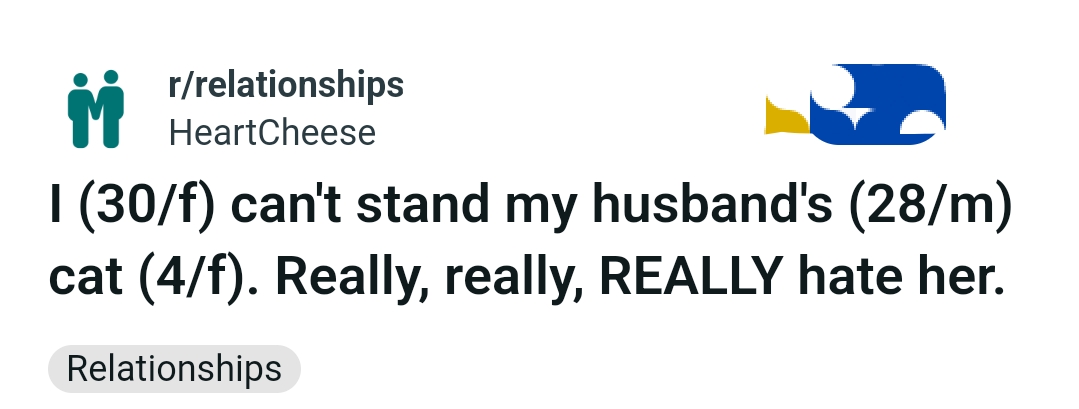
The OP came with an open mind, hoping that a community could come up with some solutions
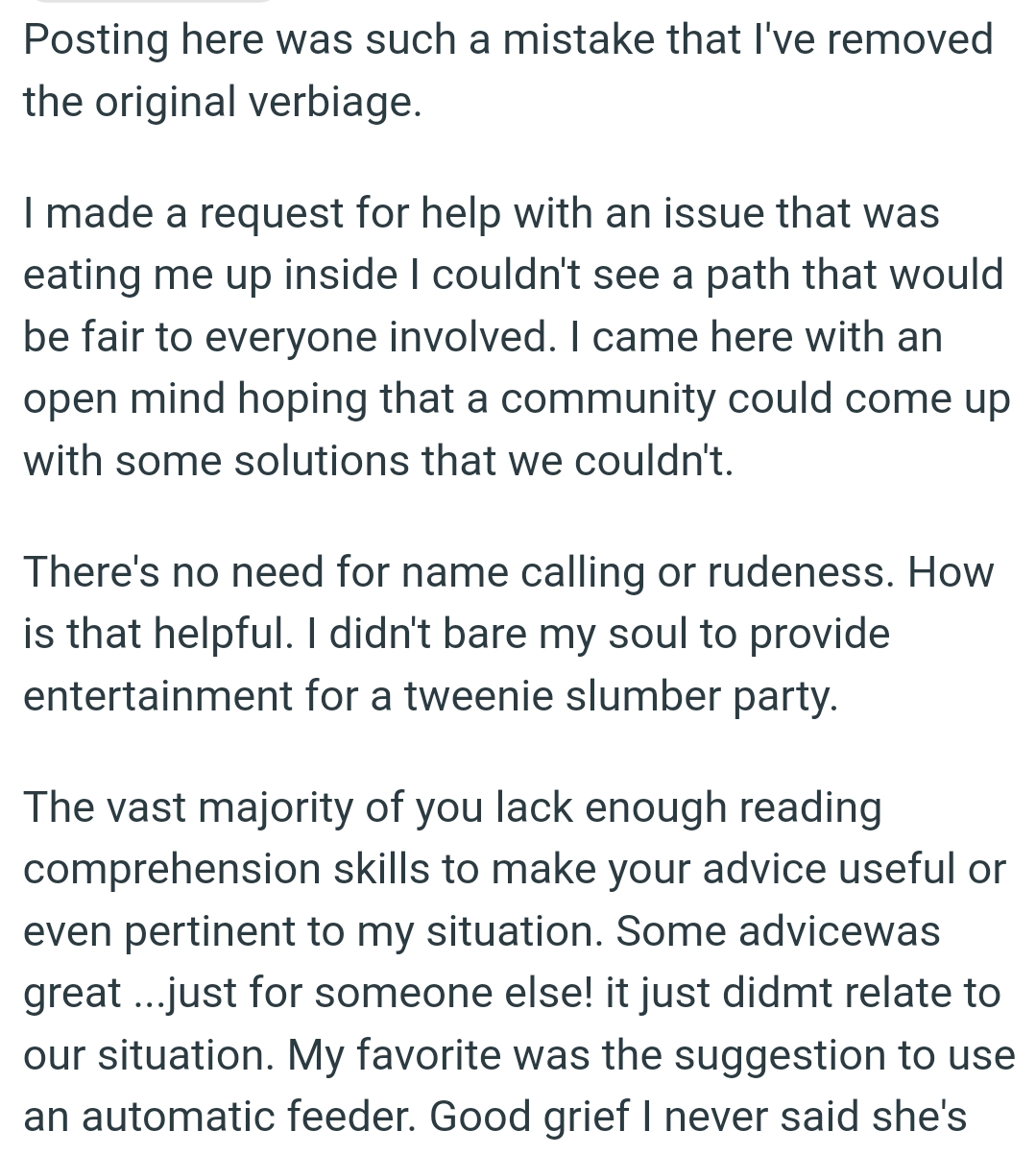
Exploring Emotional Responses to Pets
The emotional dynamics between pet owners and their animals can be complex, often revealing underlying feelings of attachment and frustration.
Research published in the Journal of Applied Animal Welfare Science indicates that strong emotional connections with pets can lead to heightened sensitivity toward their behaviors.
When these connections are challenged, such as through online criticism, it can provoke strong emotional reactions.
The OP thanks those who took the time to advocate for an animal
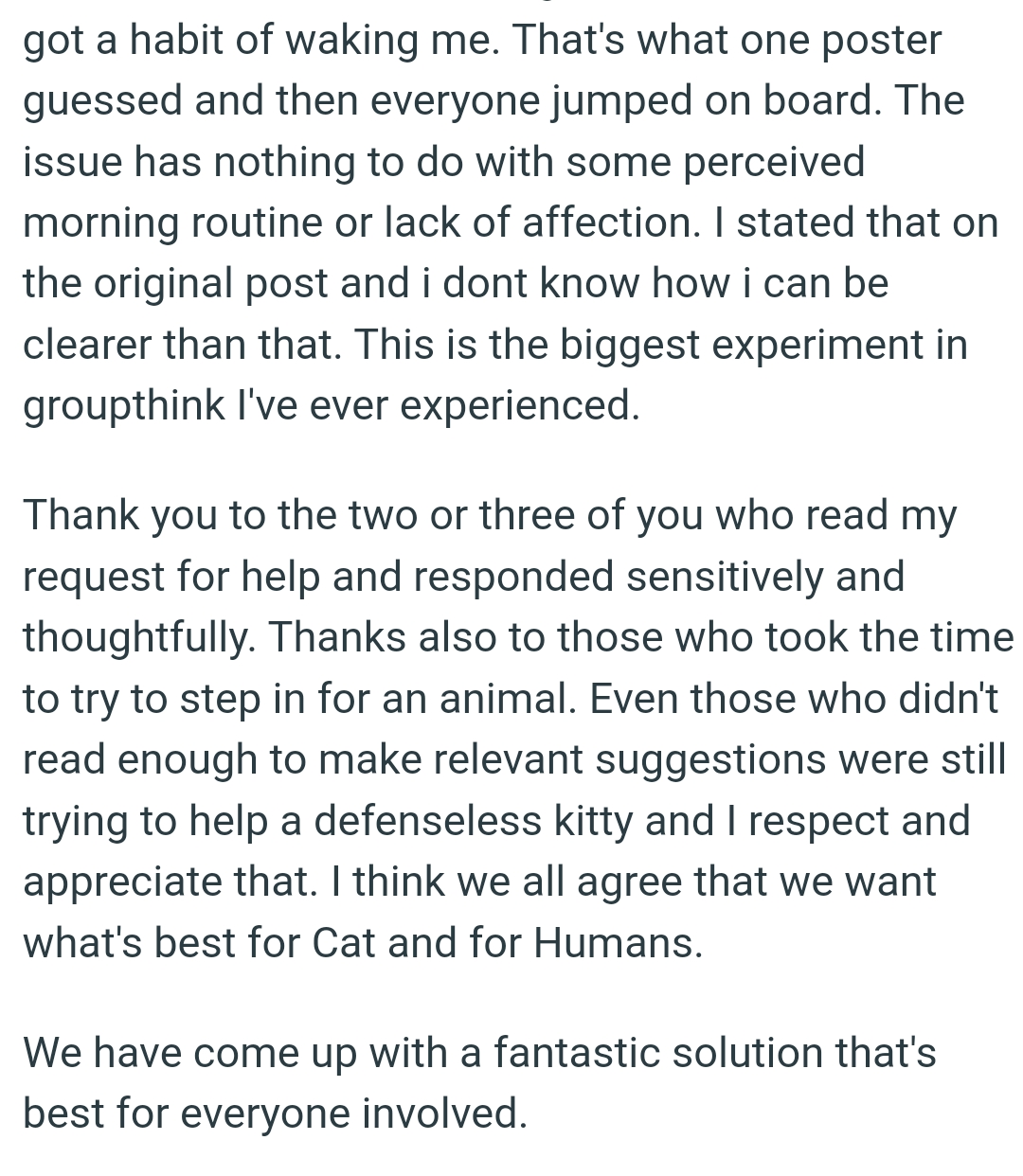
Considering Selling the House
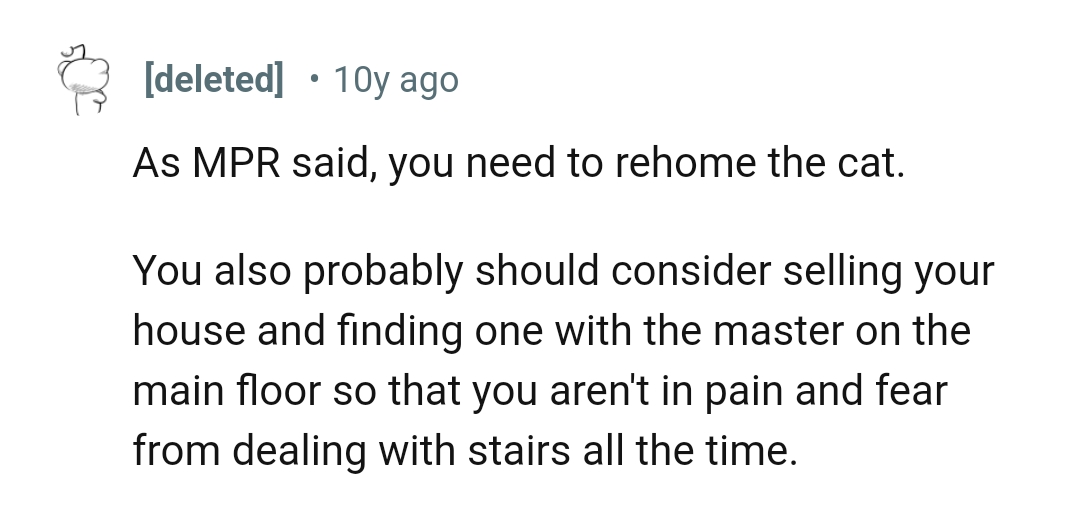
Even the bashful feline pays attention and assesses the relative safety of strangers. A cat will typically come around to accept them as a friend and reliable caregiver if given enough time to learn, but we guess the OP isn't ready to give it that chance. Let's head into the comments and find out what other Redditors have to say as more is revealed.
OP's Husband Was Partly Attracted to Her Because of Her Job

The OP Needs to Talk to Her Husband
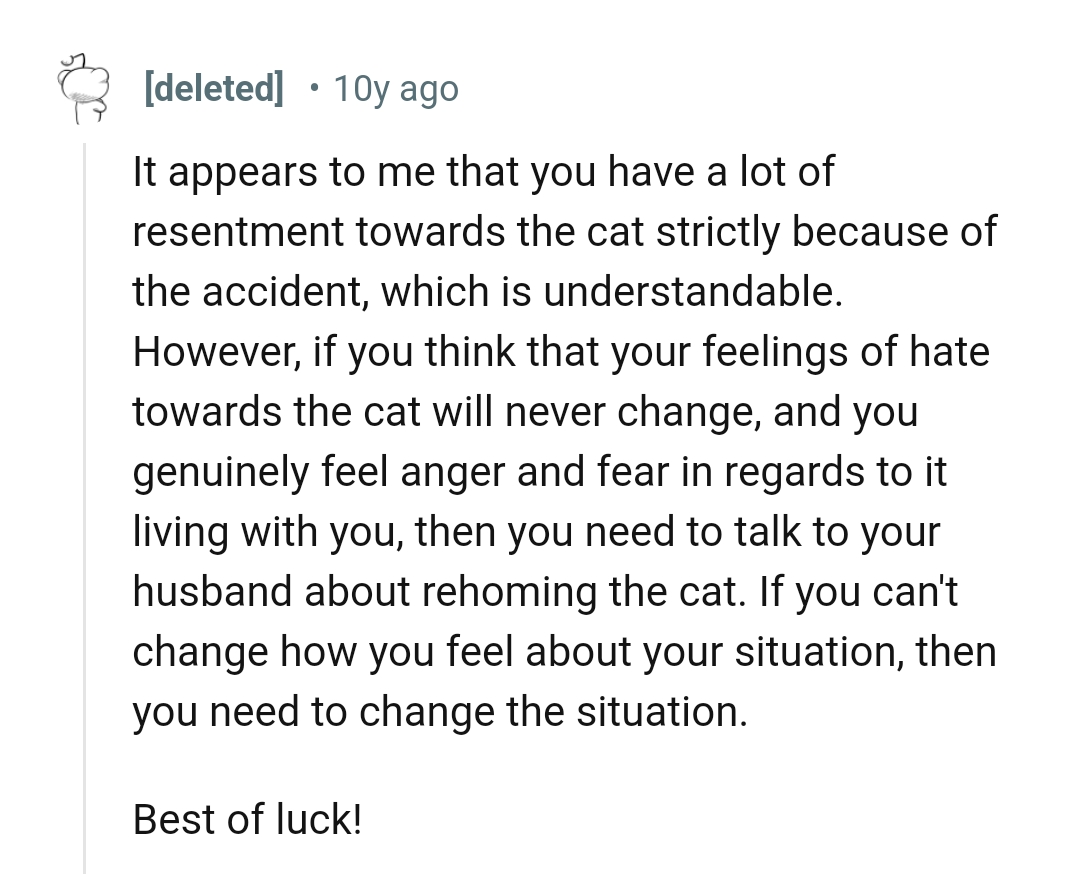
This situation exemplifies the concept of emotional flooding, where intense feelings can overwhelm rational thought processes.
Studies show that individuals who experience emotional flooding often struggle to engage in constructive dialogue, leading to defensive responses.
Recognizing the signs of emotional flooding can help individuals pause and approach conflicts more thoughtfully.
The OP Needs to Rehome the Cat
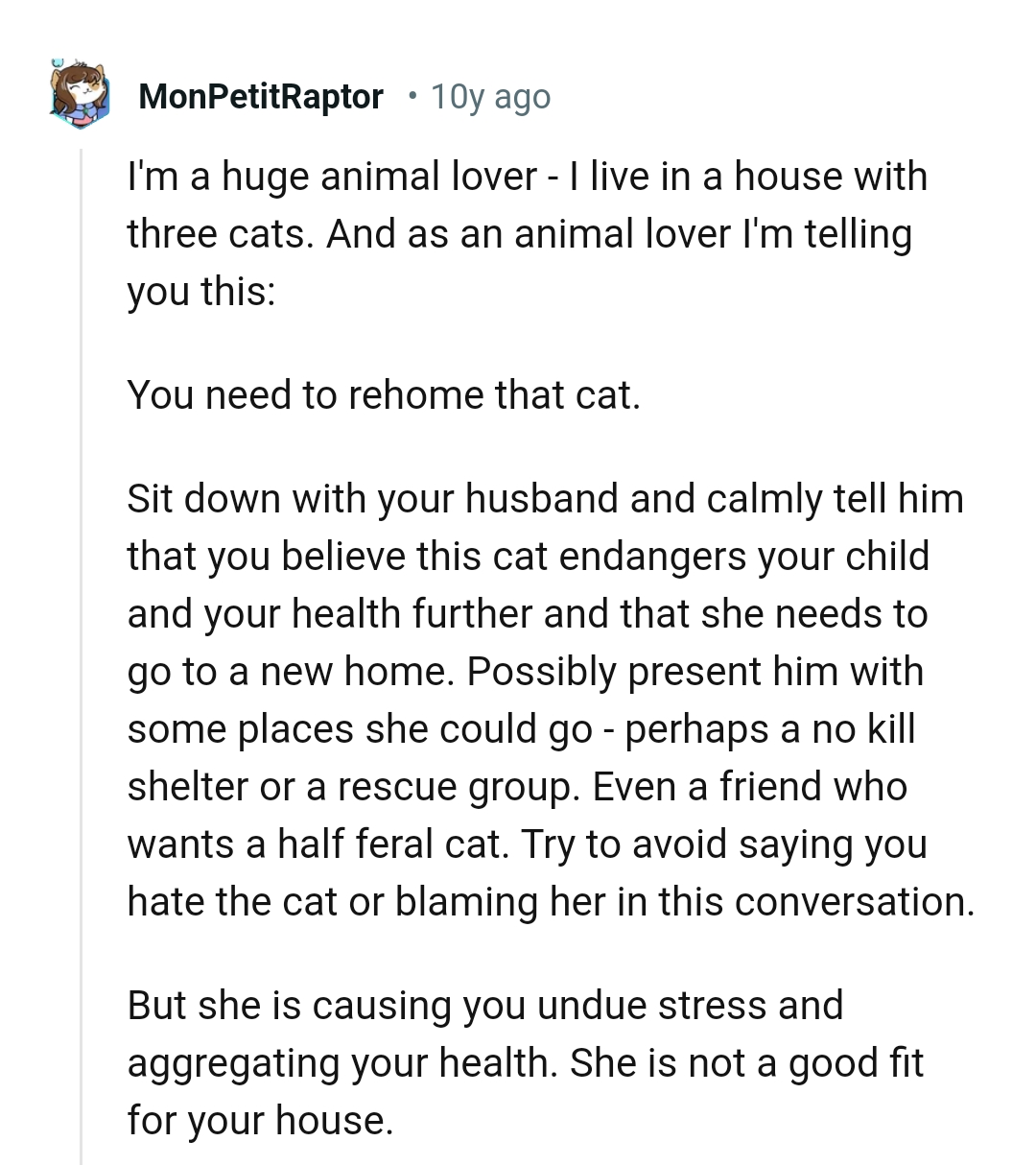
Both of Them Need to Live in a Safe Space
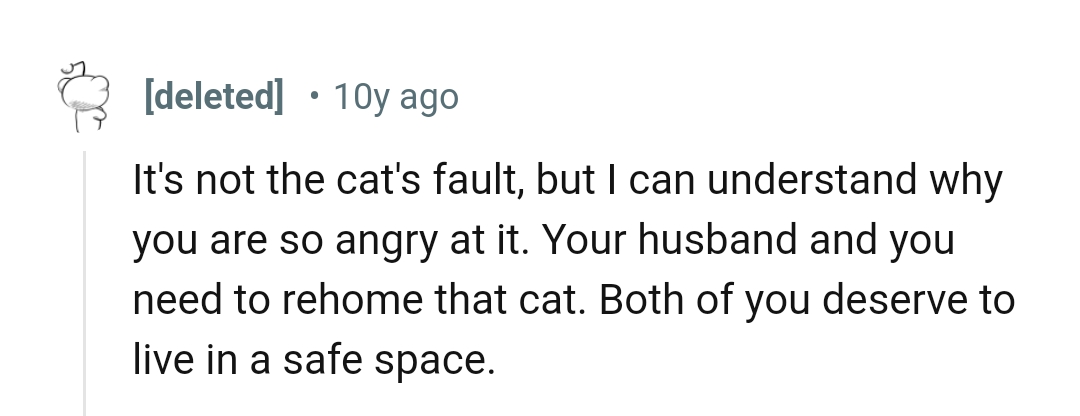
The Role of Support Systems
Having a supportive social network is crucial for navigating conflicts related to pet ownership.
Research indicates that individuals with strong support systems are more likely to handle criticism and stressful situations effectively.
Connecting with others who share similar experiences can provide validation and reduce feelings of isolation.
The Cat Scratched the OP's Pregnant Belly
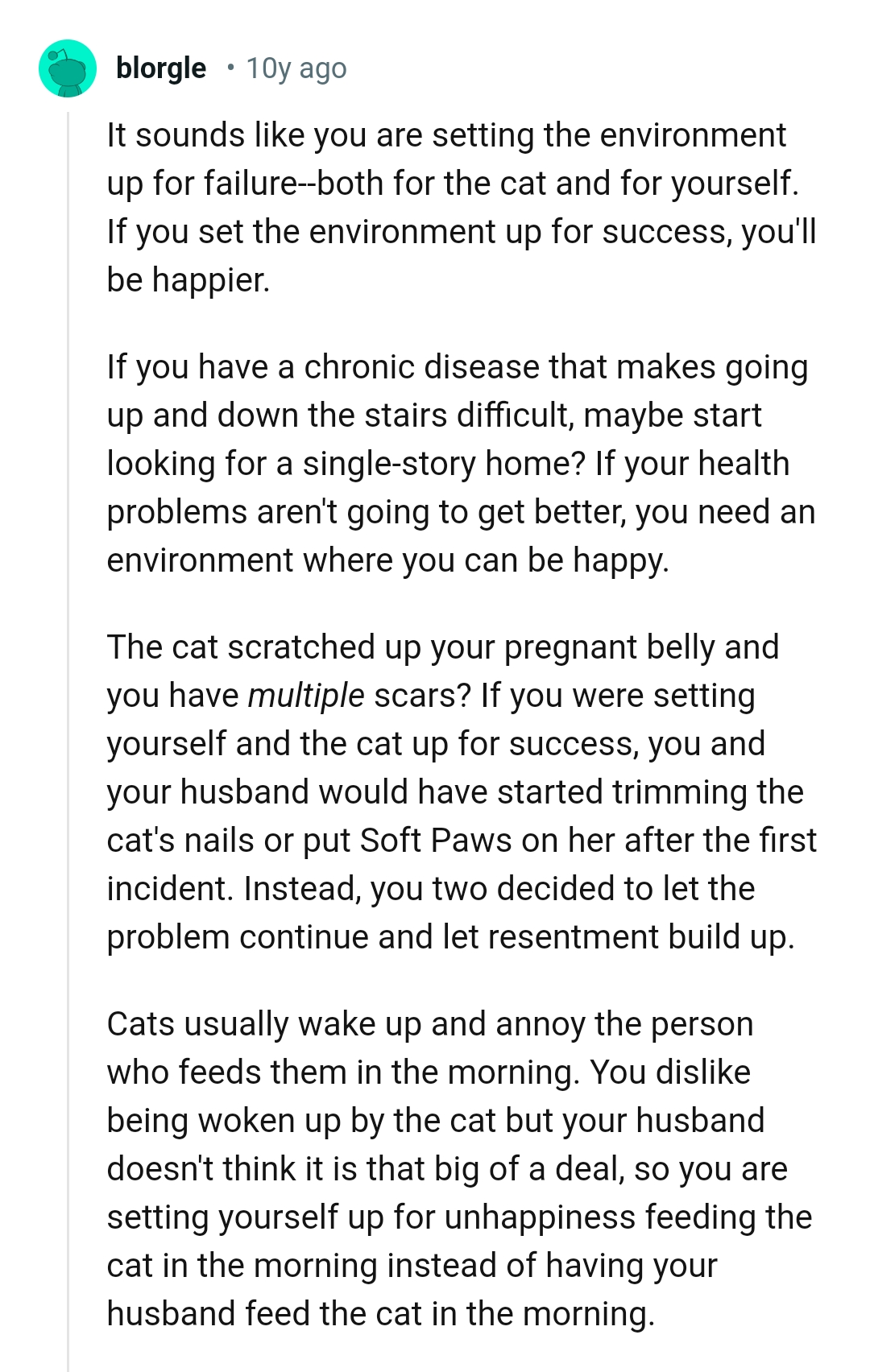
Telling the Husband That the Cat Endangers the Child
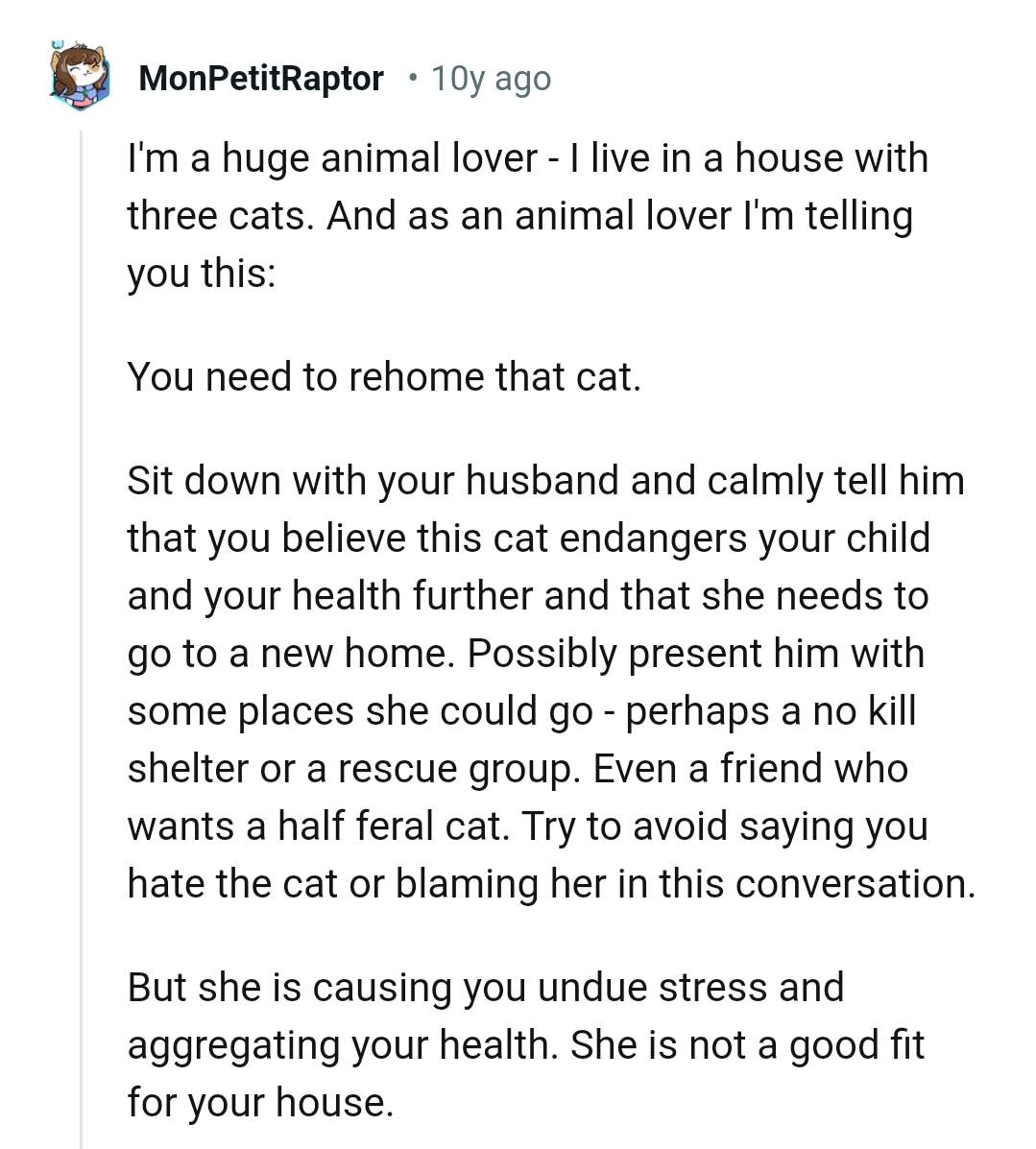
Practical recommendations for managing emotional responses include engaging in mindfulness practices and seeking support from trusted friends. According to Dr. Susan David, an emotional agility expert, “Mindfulness helps us to observe our thoughts and feelings without judgment, allowing us to respond more thoughtfully.” Regular mindfulness exercises can significantly reduce emotional reactivity and enhance emotional regulation. Additionally, Dr. Esther Perel, a renowned couples therapist, emphasizes that “Creating a space for open dialogue about feelings toward pets can foster healthier relationships,” which can be crucial in navigating complex emotions within a household.
No Wonder Nothing Is Being Accomplished as They've Not Actually Discussed the Issue
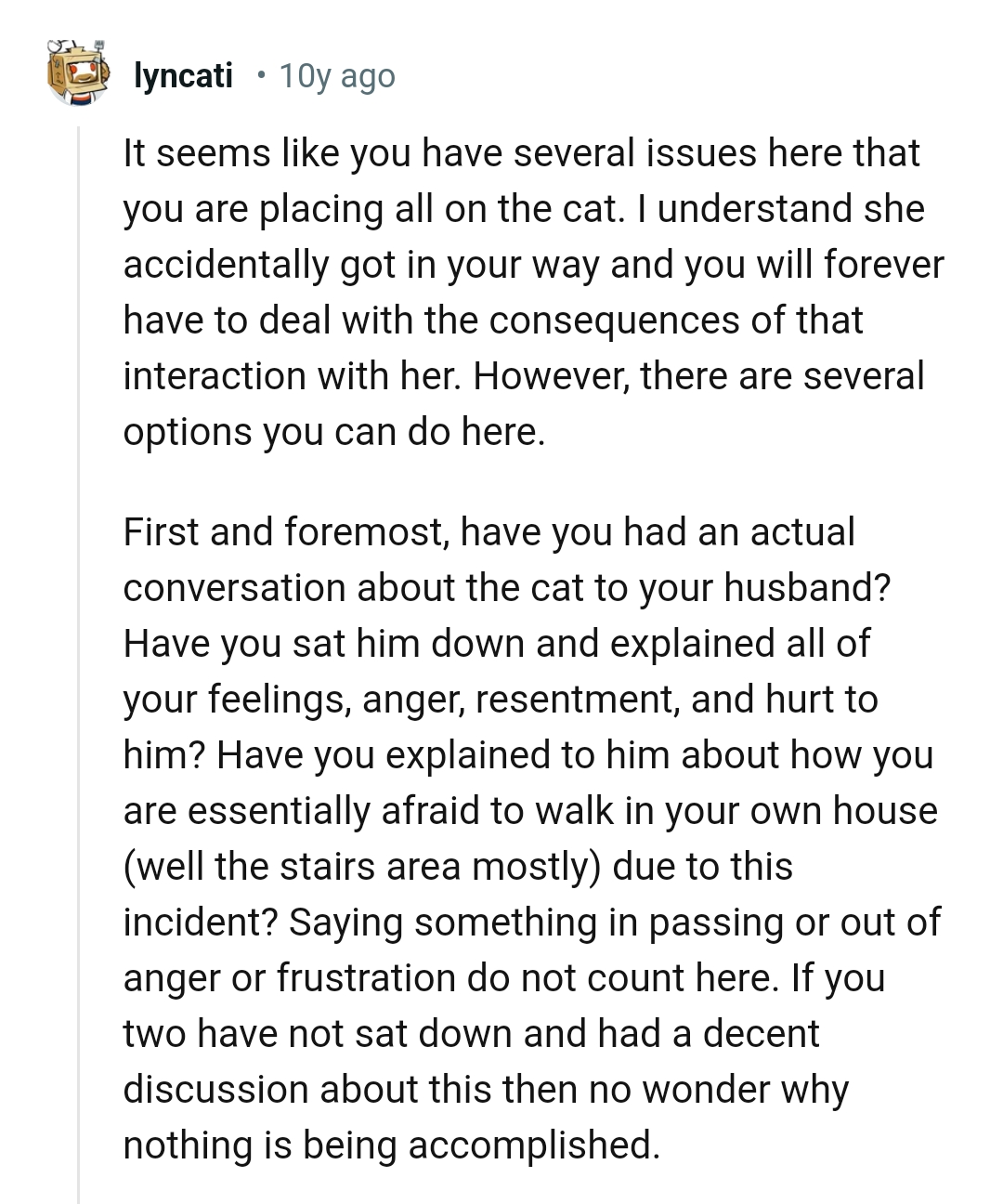
What the OP Is Building Up Is Called Resentment
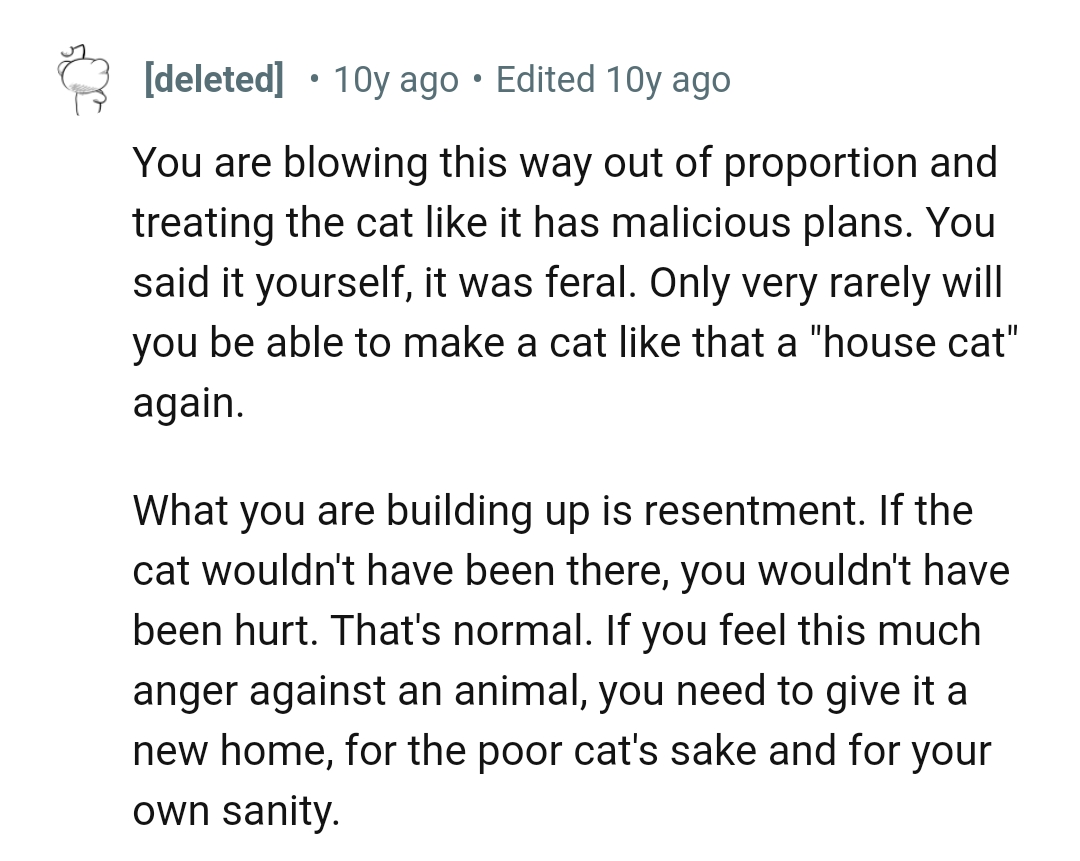
When compared to obedient and energetic dogs, cats can seem ungrateful. However, dogs and cats have evolved quite different lifestyles in the wild.
Due to the need for coordination in hunting large animals, dogs evolved to live in family packs, while wild cats have adapted to hunt and fish alone, consuming smaller prey. Nevertheless, cats' inherent independence also helps them adapt well to us, but this hatred is on a whole different level.
Psychological Analysis
This scenario illustrates the complexities of emotional responses related to pet ownership.
From my perspective, recognizing and managing these emotions is crucial for maintaining healthy relationships with pets and navigating social feedback.
Analysis generated by AI
Analysis & Alternative Approaches
In conclusion, the emotional dynamics surrounding pet ownership are deeply intertwined with social interactions and personal experiences.
Research emphasizes the importance of support systems and emotional regulation strategies in managing conflicts effectively.
By fostering open communication and seeking support, individuals can navigate the challenges of pet ownership with greater resilience and understanding.
Understanding Online Criticism
The rise of online platforms has transformed how individuals receive feedback, often leading to heightened emotional responses.
Research from the Cyberpsychology, Behavior, and Social Networking journal indicates that online criticism can trigger feelings of shame and defensiveness.
Understanding these dynamics can help individuals navigate their emotional responses in healthier ways.



